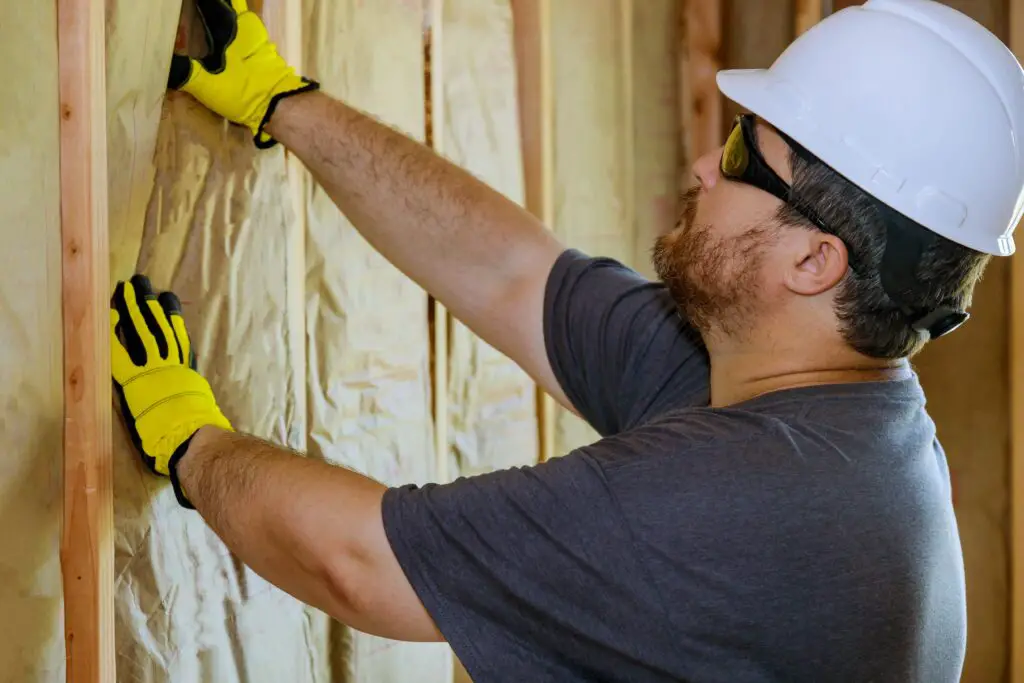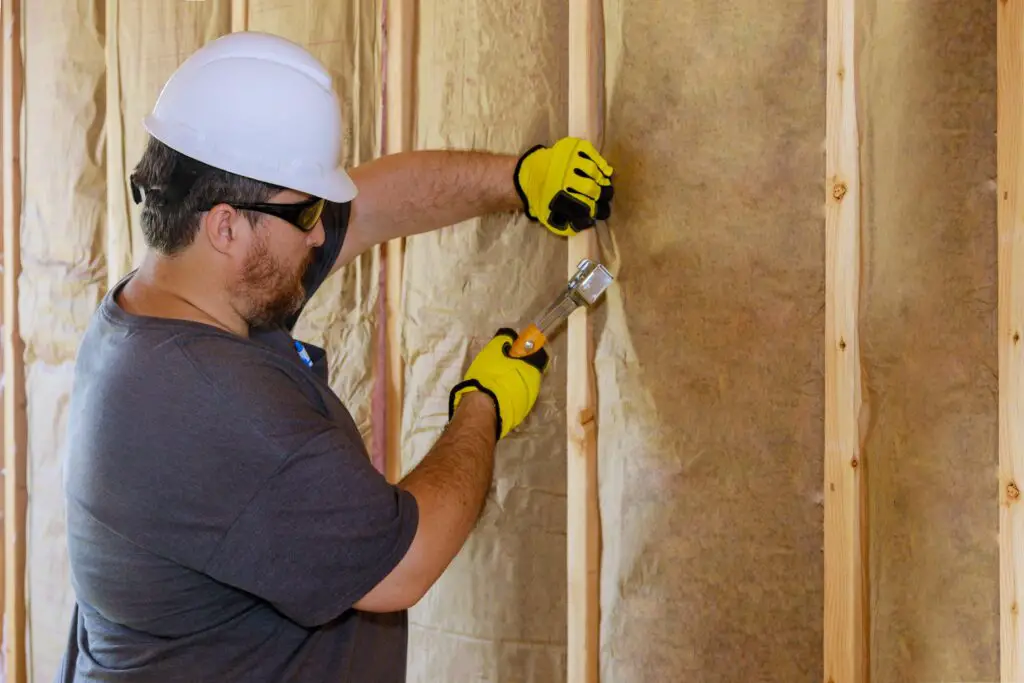Have you been thinking about insulating your home walls for some time? Although a lot of people opt for insulating their exterior walls, insulating interior walls can also give a lot of benefits. But again, it is not an easy decision to spend so much money on something if the return you are getting is not adequate. Let’s take a look if insulating your interior walls will actually be beneficial or not.
Insulating interior walls is a great idea because it lowers moisture build-up in your walls and reduces sound transfer from the other rooms. On top of this, very few people realize that insulating walls also saves you a lot of money.
This is because an insulated walls doesn’t let a lot of heat to come in or leave the room which in turn saves you a lot on energy costs.
Pros And Cons Of Insulating Your Interior Walls

Insulating your interior walls has a whole lot of benefits. Insulation does not only make your entire house more liveable but it can also end up saving you a lot of money.
Lets take a look at some of the benefits which you can expect from insulating your interior walls.
Energy Efficiency
One of the most important reasons why it is recommended to insulate even your exterior walls is because of energy efficiency. During winters and summers when there are extreme temperatures outside, the air particles within the walls also tend to transfer some of that heat or cold to the inside of the house.
By insulating your exterior walls some of that heat transfer gets reduced which makes your house much more livable and your air conditioners don’t have to work that hard to cool or heat your house.
Without insulating your exterior walls, it will basically feel like switching on an air conditioners with the room doors open. So much electricity and energy tends to get wasted.
But if these are the benefits of insulating your exterior walls then what could be the benefit of doing this on your interior walls.
If you have a different air conditioner unit in each room then, if the air conditioning system is on in your room and the room next to you is very hot then a lot of the heat of the other room will keep coming to your room as well.
But if your room is insulated then this transfer of heat will also get reduced by a lot.
Cold Resistance
Wall insulation is especially recommended if you live in a very cold region. The heating systems are not as efficient as cooling systems as a lot of heat generation is not only bad for your health but it also creates a fire hazard.
That’s why the amount of heat which can be generated by your system is very limited. If the outside temperature is very cold then this system will have to work extremely hard to heat your house.
By insulating your walls, you can end up saving a lot of heating energy and cost. Not only from the outside cold but also from rooms which are not heated.
Fire-Proof
Back in the day, most of the insulations did not used to be fire-proof. But over time, insulations have developed to be extremely fire proof. You don’t even have to spend a lot of money for this. Different types of insulating materials have different fire ratings which are based on how long they can hold off fires.
Sound Proofing
This factor is a big add on if you have a family. Haven’t you ever been annoyed by the amount of noise which comes from the other room. Even your children would want to play their music on a higher volume but they cannot because of sound leakage.
Insulating your interior rooms will dampen the exterior sound by a lot. Of course there is nothing which can completely stop the sound but the effect with insulation is pretty impressive.
Moisture Control
One of the biggest advantages of insulating your walls is to prevent moisture build-up inside the walls. This build-up can cause mildew, mould, seepage etc. This is not only disgusting but it can also be very bad for your health. Proper insulation can stop a lot of this moisture build-up.
A lot times when you are taking a shower or if the air conditioner is on in your room and the other room is at a very different temperature then the air can condense and start to collect on the walls.
What Insulation To Use For Interior Walls

There are a lot of different types of insulating materials which you can use. Different types of materials suit different needs. This will help you in deciding the material to go for.
The first type is mineral wood. This is best used for areas which are very big or for rooms which are irregularly shapes.
This kind of material provides a blanket type insulation and the material is usually some type of mineral which is infused or woven into a cloth. The material can be anything ranging from basalt or slag.
The other type of foam. These kinds of materials have become really popular in the past couple of decades. This is because it is easy to install, it can either be installed as boards or by spraying the foam.
They are lightweight and can be either made from polystyrene or polyurethane. There are different blends which you can get for this material, some are very good at fire proofing and some are really good at sound proofing but you can also get some types which have a balance between the two.
The other type if fibreglass, this is also pretty cheap but the downside is that the installing process if a little tricky as fibreglass is a bit difficult to handle. This material is also excellent at stopping fires and reducing heat transfer. But it is not known for its sound proofing qualities.
The last type which is also a bit rare is cellulose. These are very tough to handle and at the same time they can also cause allergic reactions. But at the same time they are very environmentally friendly and some of the highest fire rates materials on this list.
Which Areas Of The House Should Be Insulated
If you don’t have the time and the money to insulate your entire house at once, then there are areas which you can insulate first.
These areas are the sensitive points of heat, sound and moisture transfer in your house. So, if you protect and reinforce these areas then you can take your time in insulating the rest of the house.
The first place which should be insulated is the attic. This is because attic is in direct contact with the outside and faces environmental stresses head on like rain or thunderstorm.
So factors like heat, cold, moisture and sound can transfer very easily from the attic to the rest of the house. Attic is also responsible for letting heat escape from your house.
It is also recommended that you use fill-type and blanket-type insulation here to get the best result.
The other important area is the ground floor. If you think about it, most of the things we do in our house happens on the ground floor. This also includes things like laundry or cooking, even most of the heat and cold generated comes from this floor.
This is why it makes sense to insulate this area of the house first and stop the energy from escaping the home.
The best type of material to use here is cellulose and foam.
What Is The Difference Between Insulting Interior And Exterior Walls?
I have heard a lot of people saying that they know everything about insulating their walls just because they got their external walls insulated. But the way an exterior wall and an interior wall is built is very different. Exterior walls face environmental stresses much more and that’s why they need to be sturdier and more hardcore.
Exterior walls don’t need to be light and thin. They have to be built from more durable materials which makes them more expensive to construct.
Insulating exterior walls is the first thing which you should get done, although they are more costly to do, they end up saving you a lot more. It is usually estimated that insulating all of your exterior walls can end up reducing up to 35% in energy costs.
On the other hand, insulating interior walls, although less costly will not save you as much as the exterior walls. They can also be done by lighter materials which are anyways cheaper.
Even your insulating priorities will also change, a lot of people also look for sound proofing when they are insulating the interior walls.
Should You Insulate All Of Your Interior Walls?
The answer to this question highly depends on why you want to insulate the interior walls. There can be two possible scenarios, one, when you want to insulate walls to just soundproof your home and to further reduce the energy consumption of your house.
The second reason can be for some more serious reasons like to protect the piping behind the walls.
If you are dealing with the former, then you only need to insulate some walls where you face the issues the most.
For example, for sound proofing insulating your bedroom and living room walls should do the job. For temperature and energy control, insulating the attic or the garage should do the job.
When you are dealing with the latter, you will have to insulate almost all of the walls. But here also if you have some financial constraints, you can ask the contractor which walls should be given a priority.
It is also important to keep in mind that a lot of houses which were built in the past 20-30 years already have some kind of insulation, but they can also degrade over time.
Do You Need Insulation For Interior Walls
This question is also very subjective. Most of the houses already have their exterior walls insulated, but even then, the energy costs of the house can be very high. At the same time, you might have annoyed by the amount of sound leakage.
You should ideally compare the amount of money you will end up spending while insulating the interior walls and what you will be saving on your bills after insulating. If you are okay with the trade-off then you should go ahead with it.
But if your insulating priorities are different like sound proofing then it entirely depends on your choice.
In Conclusion…
Insulating your interior walls is a great choice and it serves a multitude of purposes.
But at the same time it can also end up being expensive so it is very important that you conduct your own research and take your time while deciding.
Enjoyed this? Make sure to read these next:


Leave a Reply